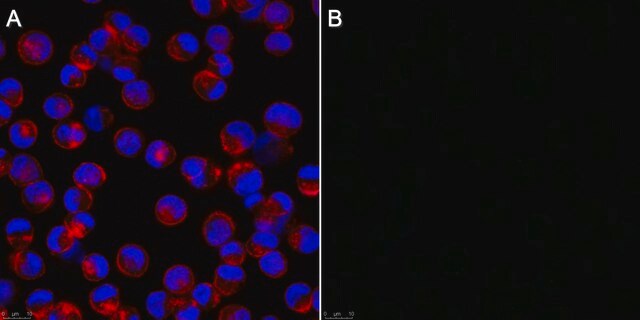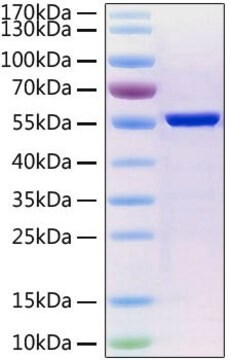MABS455
Anti-GLEPP1 Antibody, extracellular domain, clone 1B4
clone 1B4, 1 mg/mL, from mouse
Synonym(s):
Receptor-type tyrosine-protein phosphatase O, R-PTP-O, Glomerular epithelial protein 1, Protein tyrosine phosphatase U2, PTP-U2, PTPase U2, Ptpro
About This Item
Recommended Products
biological source
mouse
antibody form
purified antibody
antibody product type
primary antibodies
clone
1B4, monoclonal
species reactivity
rat
concentration
1 mg/mL
technique(s)
immunohistochemistry: suitable
western blot: suitable
isotype
IgG2aκ
NCBI accession no.
UniProt accession no.
shipped in
wet ice
target post-translational modification
unmodified
Gene Information
rat ... Ptpro(50677)
General description
Immunogen
Application
Western Blotting Analysis: A representative lot detected GLEPP1, extracellular domain in rat isolated glomeruli tissue lysate (Fukuda, A., et al. (2012). J Am Soc Nephrol. 23:1351–1363).
Quality
Immunohistochemistry Analysis: A 1:50-250 dilution of this antibody detected GLEPP1, extracellular domain in glomeruli of rat kidney tissue.
Target description
Physical form
Not finding the right product?
Try our Product Selector Tool.
Storage Class
12 - Non Combustible Liquids
wgk_germany
WGK 1
flash_point_f
Not applicable
flash_point_c
Not applicable
Certificates of Analysis (COA)
Search for Certificates of Analysis (COA) by entering the products Lot/Batch Number. Lot and Batch Numbers can be found on a product’s label following the words ‘Lot’ or ‘Batch’.
Already Own This Product?
Find documentation for the products that you have recently purchased in the Document Library.
Our team of scientists has experience in all areas of research including Life Science, Material Science, Chemical Synthesis, Chromatography, Analytical and many others.
Contact Technical Service








